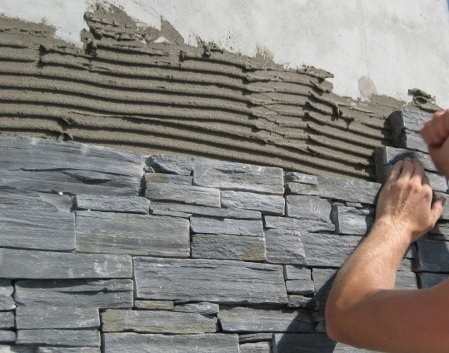Introduction
Exterior stone cladding enhances the aesthetic appeal and durability of buildings. However, choosing the right adhesive is crucial to ensuring long-lasting performance. In this comprehensive guide, we explore what adhesive for exterior stone cladding is best, factors to consider, types of adhesives, installation tips, and more.
Why Choosing the Right Adhesive Matters
The adhesive used for exterior stone cladding must withstand:
- Extreme weather conditions (heat, cold, moisture)
- Structural movements
- Weight of the stone cladding
- Thermal expansion and contraction
Using the wrong adhesive can lead to detachment, water infiltration, and structural damage.
Factors to Consider When Selecting Adhesive for Exterior Stone Cladding
- Type of Stone Material – Natural stone, artificial stone, granite, marble, and slate require different adhesive formulations.
- Surface Type – Concrete, cement boards, bricks, and drywall affect adhesive selection.
- Weather Resistance – Choose adhesives that are waterproof and resistant to freeze-thaw cycles.
- Flexibility & Bonding Strength – Elastic and high-bond adhesives prevent cracking.
- Drying & Curing Time – Some adhesives require longer curing times for maximum strength.
Types of Adhesives for Exterior Stone Cladding
1. Cement-Based Adhesives
Best For: Natural stone, brick veneers, and concrete surfaces.
- Pros: High strength, durable, weather-resistant
- Cons: Requires proper mixing, longer curing time
- Popular Brands: Laticrete 254 Platinum, Mapei Kerabond
2. Epoxy Adhesives
Best For: Heavy stone slabs, extreme conditions, and metal surfaces.
- Pros: High bonding strength, waterproof, chemical-resistant
- Cons: Expensive, short working time
- Popular Brands: Loctite Epoxy Metal/Concrete, Laticrete LATAPOXY 300
3. Polyurethane Adhesives
Best For: Lightweight stone panels and flexible substrates.
- Pros: Strong adhesion, flexible, weather-resistant
- Cons: Not suitable for heavy stones
- Popular Brands: Gorilla Heavy Duty Construction Adhesive, Sikaflex 11FC
4. Thin-Set Mortar
Best For: Porous stones and tile cladding.
- Pros: Strong bond, easy application, cost-effective
- Cons: Requires a stable substrate, may need an additional waterproofing layer
- Popular Brands: Schluter ALL-SET, Custom Building Products VersaBond
Comparison Table: Best Adhesives for Exterior Stone Cladding
| Adhesive Type | Best For | Pros | Cons |
| Cement-Based | Natural stone, bricks, concrete | High strength, durable, weather-resistant | Requires mixing, longer curing time |
| Epoxy Adhesives | Heavy stone, extreme conditions | Strong bond, waterproof, chemical-resistant | Expensive, short working time |
| Polyurethane | Lightweight panels, flexible | Flexible, strong adhesion, weatherproof | Not for heavy stones |
| Thin-Set Mortar | Porous stones, tiles | Cost-effective, strong bond | Needs stable substrate, may require waterproofing |
Step-by-Step Guide to Applying Adhesive for Exterior Stone Cladding
- Surface Preparation
- Clean the surface from dust, grease, and debris.
- Ensure the surface is dry and stable.
- Apply a waterproofing membrane if required.
- Mixing & Applying Adhesive
- Follow manufacturer instructions for mixing.
- Use a notched trowel for even application.
- Apply adhesive in small sections to prevent drying before installation.
- Installing the Stone Cladding
- Press the stone firmly into place.
- Use spacers for even alignment.
- Check for levelness with a spirit level.
- Curing & Finishing
- Allow sufficient drying time.
- Seal joints with weatherproof grout.
- Clean excess adhesive before it hardens.
Common Mistakes to Avoid
- Using indoor adhesives – Exterior adhesives must withstand harsh weather.
- Skipping waterproofing – Prevents moisture-related damage.
- Incorrect mixing ratios – Weakens adhesive strength.
- Applying on unstable surfaces – Leads to detachment over time.
FAQs About Adhesives for Exterior Stone Cladding
1. What is the strongest adhesive for exterior stone cladding?
Epoxy adhesives offer the highest bonding strength and durability for heavy stone applications.
2. Can I use regular cement mortar for stone cladding?
Regular cement mortar lacks flexibility and bonding strength, making it unsuitable for exterior stone cladding.
3. How long does stone cladding adhesive take to dry?
Drying time varies based on adhesive type:
- Cement-based: 24-48 hours
- Epoxy: 6-12 hours
- Polyurethane: 12-24 hours
4. Do I need to seal exterior stone cladding?
Yes, sealing enhances water resistance and prolongs stone durability.
Conclusion
Selecting the right adhesive for exterior stone cladding is crucial for durability and aesthetic appeal. Cement-based adhesives work well for general use, epoxy is best for extreme conditions, and polyurethane suits flexible applications. Follow proper installation techniques to ensure long-lasting results.
For professional-grade results, always consult manufacturer guidelines and consider hiring an expert for installation.


Leave a Reply